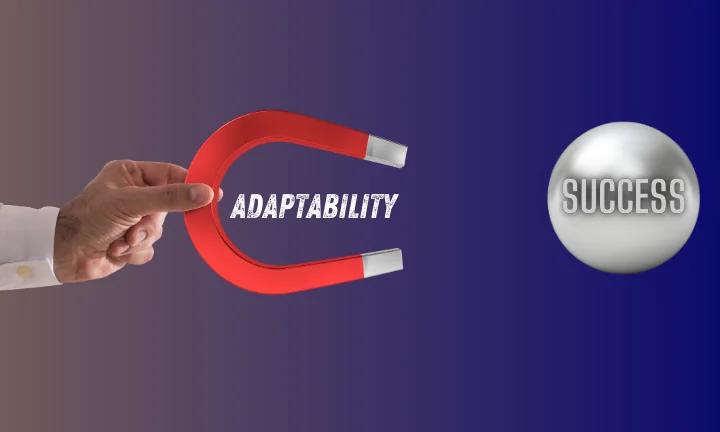In 2024, landing that dream job is like going to a potluck dinner everyone’s bringing something to the table, but only the best dishes get attention. The workforce is more competitive than ever, and employers are scanning resumes for specific skills like hawks. Whether you’re fresh out of college or a seasoned professional, knowing what skills are in demand can give you a head start in your career.
Digital Literacy

Let’s be real everything is online nowadays, from your coffee order to your job interview. Employers want candidates who are comfortable navigating digital tools, platforms, and technologies. This doesn’t just mean knowing how to check your email (though, if you can’t do that, start there). Digital literacy includes understanding cloud computing, data analytics, and remote work tools like Slack, Microsoft Teams, and Zoom.
Being digitally literate isn’t just about using technology, it’s about embracing it. Employers love candidates who can jump into new software, troubleshoot tech problems, and even suggest better tools for the job. Think of it as knowing the difference between a microwave and an oven and knowing when to use which one!
Pro tip: You don’t have to be a tech genius, but having basic knowledge of popular software like Microsoft Excel, Google Analytics, or even coding languages can make you a standout candidate.
Emotional Intelligence (EQ)

Being able to read the room (and not just the PowerPoint slides) is a skill that will never go out of style. Emotional intelligence, or EQ, refers to your ability to understand and manage your emotions, as well as navigate relationships in a work environment. In 2024, as workplaces continue to be more diverse and inclusive, employers are looking for team players who can adapt to different personalities and situations.
High EQ means you can resolve conflicts, collaborate well, and lead with empathy. It’s not about being the nicest person in the office, but rather being the most aware. And trust me, knowing when to ask “How are you?” is just as important as knowing when to ask “How’s the project?”
Adaptability

If 2020 taught us anything, it’s that anything can happen. In the post-pandemic world, employers have zeroed in on adaptability as a top skill. Whether it’s transitioning to remote work, learning new software, or adjusting to changing company policies, the ability to roll with the punches is invaluable.
Adaptability isn’t just about going with the flow. It’s about thriving in the flow. Employers are impressed by candidates who can learn quickly, pivot when necessary, and remain calm under pressure. Flexibility is no longer a nice-to-have; it’s a must-have.
Think of adaptability as being like a good Wi-Fi signal you want it to be strong and reliable, no matter what obstacles get in the way. Whether you’re shifting roles or taking on new responsibilities, your ability to adjust will set you apart.
Problem-Solving Skills

Employers are not just looking for people who can do the work they want people who can think through it. Problem-solving is about more than just identifying issues; it’s about coming up with creative solutions that stick. Whether it’s figuring out why the company website keeps crashing or how to handle a difficult client, problem-solvers are the superheroes of the modern workplace.
In 2024, employers want employees who can think critically, analyze data, and make informed decisions. Remember, nobody likes a complainer—they like someone who can fix the problem and keep the train on track.
Quick humor break: If your idea of problem-solving is ‘turning it off and on again,’ it might be time to broaden your approach!
Leadership Skills

You might be thinking, “But I’m not in management!” Well, leadership isn’t just about managing people it’s about leading by example, taking initiative, and showing responsibility. Employers want individuals who can step up when needed, motivate their peers, and contribute positively to the workplace culture.
Leadership comes in many forms, from mentoring a junior employee to spearheading a project. Even if you’re not in charge, having leadership skills can make you an invaluable asset to your team. Plus, these skills are like a fine wine they get better with time and experience.
Remember: Leadership isn’t about having a fancy title; it’s about making things happen, whether you’re at the front of the room or working quietly from the sidelines.
Conclusion
As we move through 2024, employers are homing in on a blend of technical know-how and soft skills. Whether you’re a digital nomad or a team player in an office setting, possessing these five skills will help you stand out from the crowd. So, if you’re looking to make your mark in the workplace, it might be time to brush up on that digital literacy, flex those problem-solving muscles, and most importantly stay adaptable!
FAQs
Q: Do I need all five skills to get hired in 2024?
A: Not necessarily! Every job is different, and not every employer is looking for the exact same skill set. However, having a mix of these top skills will definitely make you a more attractive candidate to potential employers.
Q: How can I improve my digital literacy if I’m not tech-savvy?
A: Start small. You don’t have to learn how to code in a day! Begin by familiarizing yourself with basic tools like Microsoft Office, Google Workspace, or any other software that’s common in your industry. Online tutorials are a great place to start.
Q: Is emotional intelligence something you can learn?
A: Absolutely! While some people might have a natural knack for EQ, it’s a skill that can be developed. Practice active listening, being empathetic in conversations, and learning how to manage stress in high-pressure situations.
Q: How do I show adaptability during an interview?
A: Share examples of times when you had to pivot in a previous job, learn something new quickly, or manage a crisis. Demonstrating your ability to adapt in real-world situations will impress employers.
Q: Do leadership skills mean I need to aim for management roles?
A: Not at all! Leadership is about taking initiative and responsibility, even when you’re not in a managerial position. You can lead projects, mentor colleagues, or simply offer solutions to improve team efficiency.

